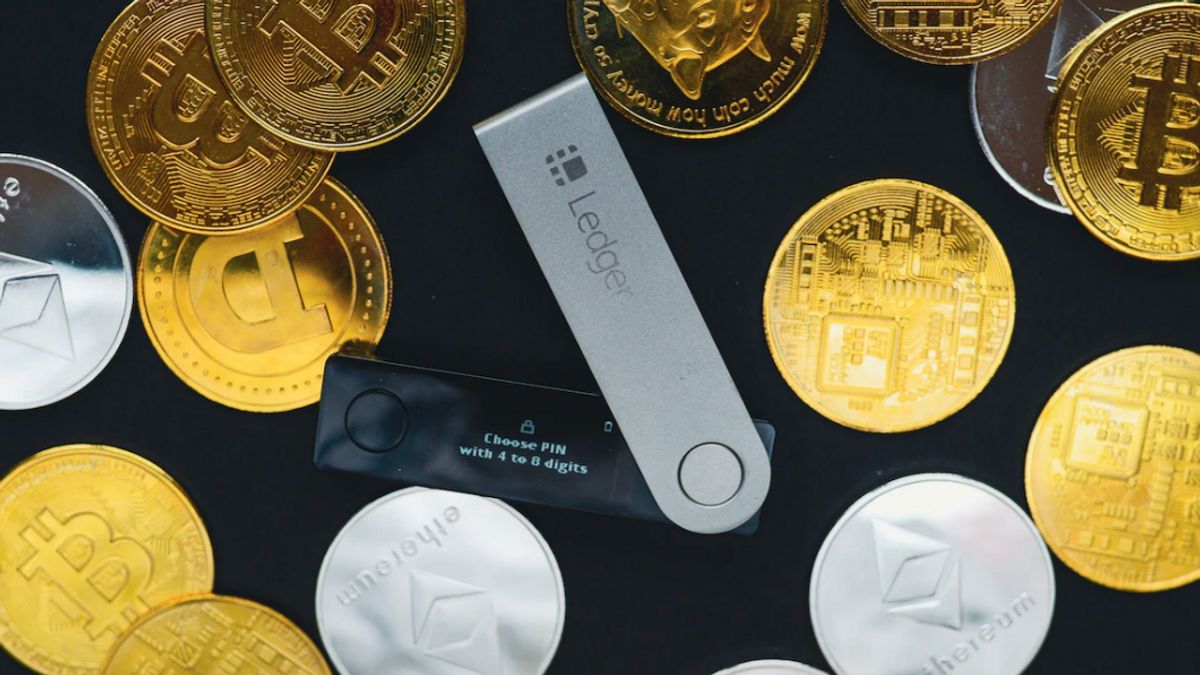JAKARTA - The number of bitcoins stored on crypto exchanges has fallen below 6 percent, according to crypto analysis platform Santiment. This shows that more and more bitcoin holders choose to store their cryptocurrencies on cold wallets than on exchanges.
For information, the cold wallet is the name for a physical digital wallet in the form of a flash drive to store crypto assets. Cold wallet is not connected to the internet for security. One of the famous cold wallets is Ledger.
This last happened in December 2017. The decline in confidence in centralized platforms has increased after the fall of FTX, which was one of the leaders in its field before going bankrupt. Binance has also seen an increase in bitcoin outflows over the past few months, signaling that many users prefer to rely on self-custody over third-party custodians.
According to Santiment's analysis, the supply of bitcoin stored on the exchange has fallen to 5.84 percent, the lowest point in the last five and a half years. The rapid shift from the customer to the self-custody method began in early 2022 and continued over the following months. The sharp decline occurred after November last year when the number of BTC stored on the centralized platform fell below 7 percent.
The fall of FTX can be considered a major factor. At that time, many investors lost confidence in the stock exchange after the decisive fall of an once prominent entity worth more than 32 billion US dollars (Rp471 trillion).
- https://voi.id/teknologi/278924/perangi-skema-ponzi-kripto-bank-sentral-irlandia-kerja-sama-dengan-regulator-eropa
- https://voi.id/teknologi/278928/binance-bakal-tawarkan-nft-bitcoin-ordinals-akhir-mei-ini
- https://voi.id/teknologi/278932/paypal-tingkatkan-investasi-aset-kriptonya
Binance as the world's largest crypto exchange by daily trading transactions has seen a large wave of customer withdrawals in December last year, which Binance CEO Changpeng Zhao said was triggered by FUD (Fear, Uncertainty, Doubt).
Even though it is, CZ ensures that its company will remain a solid customer, suggesting that people feel safe when storing their crypto assets there. The rest in doubt must be free to move their assets to a cold wallet. In early May, about 160,000 BTC or worth 4.6 billion US dollars (Rp67 billion) in Binance came out of one of the platform's wallets, the biggest single withdrawal in its history.
Colin Wu, an analyst, revealed that most likely Binance's wallet was adjusted internally to a new address, and the new address did not transfer out after receiving the funds.
Binance temporarily suspended the withdrawal of BTC due to network bottlenecks the previous day, but operations returned to normal a few hours later. Binance encountered another similar problem on May 8 and apologized for the inconvenience caused. CEO Zhao said that the issue was not so serious as a result of cost fluctuations in bitcoin networks.
The English, Chinese, Japanese, Arabic, and French versions are automatically generated by the AI. So there may still be inaccuracies in translating, please always see Indonesian as our main language. (system supported by DigitalSiber.id)













